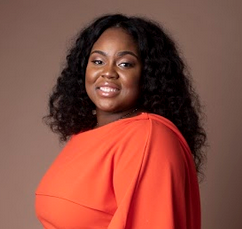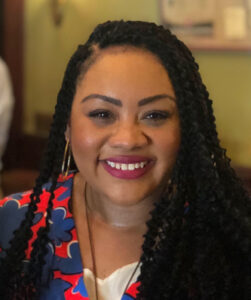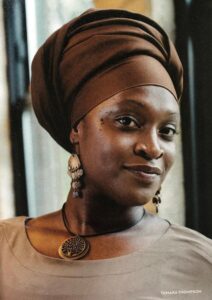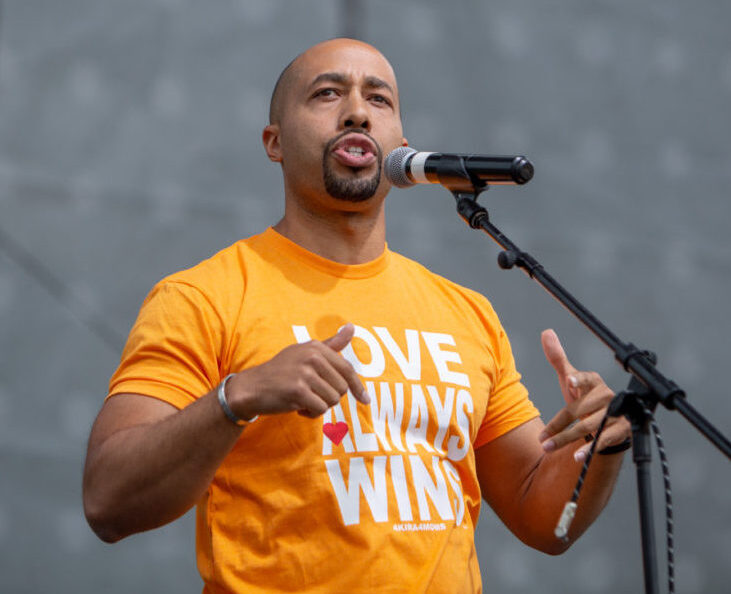
Black mothers in Wisconsin face a three times greater maternal mortality rate than their white peers while also facing social, economic, and healthcare barriers that place their health and well-being at risk.
With that in mind, The Foundation for Black Women’s Wellness and the Black Maternal and Child Health Alliance of Dane County will host the 3rd annual Wisconsin Black Maternal & Child Health Summit on Thursday, April 20, 9 a.m.-3:30 p.m. The theme for this year’s virtual event will be “Foraging Forward for Black Birth Justice.”
This one-day conference, hosted by and for Black women, is intended, according to its organizers, for “Black women and Black birthing people who are mothers, birthing parents, birth workers, community leaders, and Black women reproductive justice advocates in Wisconsin who are ready to join forces to share our successes and to drive solutions together.”
“Our theme this year is ‘Foraging Forward for Black Birth Justice’ and that really is indicative of not only the work that we started here in Dane County around the ‘Saving Our Babies’ initiative to really transform Black birth outcomes and to address the looming problem of Black infant mortality in our community in our state,” Lisa Peyton-Caire, founder and CEO of the Foundation for Black Women’s Wellness (FFBWW), tells Madison365, “but it is also reflective of the national conversation that continues to happen in the United States about how we can eliminate Black birth disparities in terms of Black infant mortality and maternal mortality.”
The one-day Wisconsin Black Maternal & Child Health Summit, now in its 3rd year, is really started to gain traction and is made possible by the sponsorship support of the Dane County Health Council.
“Not only is it designed for Black birth workers, but it’s also designed for Black mothers and Black birthing people, Black birth justice advocates and the community at large and our allies. It’s an opportunity to really come into a space to talk about solutions and strategies and best practices in the context of the urgency of really addressing this problem effectively and working toward seeing change and transformation,” Peyton-Caire says. “We’ve been documenting and talking about this problem for many, many years and the intent now is to really figure out how to forge forward on changing the narrative and the dynamics and the outcomes.
“There’s been significant national work around this issue for a very long time largely driven by Black women and Black leaders, and we’re so proud to be able to present this event and demonstrate our efforts here in Wisconsin and how they are tied to the national efforts that are happening all over the United States.”
The work here in Wisconsin is especially important because the state, Peyton Caire adds, has been among the top five states in the nation for many decades for Black infant mortality, Black birth disparities, and for racial health disparities in general.
“So it’s very important and special to us that we’re able to be a voice of leadership around this issue in Wisconsin where we have a great responsibility to drive solutions and to solve our own challenges in our state and to be in this position to be a creator of solutions that are happening right here in Dane County,” she says.
The 3rd annual Wisconsin Black Maternal & Child Health Summit will be really broad in its focus as speakers, panelists and experts will talk about the landscape of Black maternal and child health from a national, statewide and local perspective.
“So it is very intentional on our part to talk about what’s happening across our country and how that also looks in Wisconsin. And because of that, we attract an audience not only statewide, but nationally,” Peyton-Caire says. “This event is growing each year and it’s attracting people from all over the country because we’re really demonstrating thought leadership and a very powerful grasp of this issue from the vantage point of a Black women-centered perspective. And that’s a very unique part about this event.”

The opening panel for the event will be titled “State of Black Women’s Health Locally and Nationally” and will feature panelists Dazon Dixon Diallo, founder and president of SisterLove, Inc.; Adelaide “Adele” Appiah, program director of Creating Healthier Communities; and Jennifer Petite, the CEO of Health Equilibrium Group and Emory University Board of Visitors member.

Another morning panel, titled “Resistance, Resilience and Advocacy – Birthworkers Delivering Justice Through Community Care,” will feature panelists Micaela Berry-Smith, program manager of Maternal and Child Health Initiatives for The Foundation for Black Women’s Wellness; Tamara Thompson, a doula and childbirth educator for Mother Earth Doula Care; and Sasha Bariffe, midwife for Owner Prism Birth Services.

“A big component of this event is storytelling throughout the day. So we’re not just talking about the issue from a research data or issue standpoint, but we’re actually hearing from women and men and mothers and fathers who have been impacted by the issue directly which brings the issue to life and helps us to put faces and names of real people to an issue that can sometimes be too centered around data,” Peyton-Caire says.
The lunch keynote speaker will be Charles Johnson, the founder of 4Kira4Moms, who has dedicated his life to the pursuit of what his own family failed to receive – safe, respectful, and equitable maternal health outcomes in America.
“Charles is a passionate advocate. He has used his life experience to really create a movement that has really impacted the narrative around Black maternal mortality,” Peyton-Caire says. “He has spurred action in our national legislature, and he has worked with both the national government and state governments to really bring this issue of Black maternal mortality into the national spotlight.

“We are excited to hear him speak at the summit and see what he has to say and how he will call us to action to move forward,” she adds. “He really demonstrates that Black men and fathers play a central role in the issue of Black birth outcomes. We cannot forget about the vital role that men and fathers play. Their voices are still needed in this space and Charles Johnson epitomizes that commitment. And we’re blessed to have him at the event.”
An afternoon panel will feature all-male panelists and will be titled “Black Men Mobilizing for Black Birth Justice.” Gabe Doyle, the chief health initiatives officer for The Foundation for Black Women’s Wellness, will be the facilitator. Panelists will include Brooks Griffin, an inspirational speaker and youth advocate; David Hart, an attorney, writer, pastor and special assistant to the superintendent of the Madison Metropolitan School District, and Dr. Emmanuel Ngui, associate professor of community and behavioral health/maternal and child health at UW-Milwaukee.
Kimberly Seals Allers, an award-winning journalist, five-time author, international speaker, strategist, and advocate for maternal & infant health, will close out the day by delivering the afternoon keynote.
“It will be a powerful day,” Peyton-Caire says. “This convening is so beautiful because it really is the time and space to demonstrate the multitude of voices that are in this movement and how Black women and Black men have really taken up this charge to drive change where systems have been slow to address this issue.
“I’m looking forward to the diversity of voices and perspectives that folks will be bringing to the table to help us understand this issue from multiple vantage points and all the layers and complexities and all the sectors that are required to really drive change as we work to eliminate Black birth disparities in the United States.”
To register for the 3rd annual Wisconsin Black Maternal & Child Health Summit, click here.



